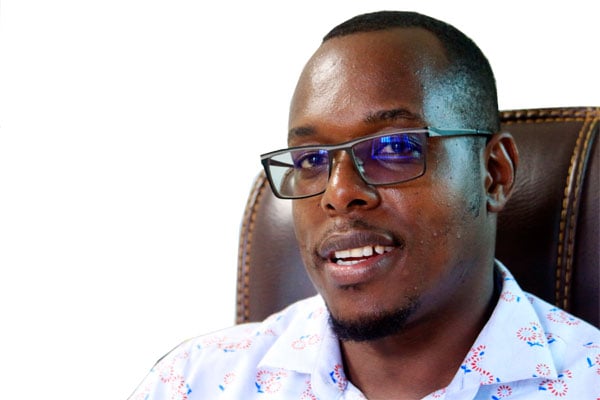Prime
Mental health patients flood Butabika Hospital

The executive director of Butabika Hospital, Dr Juliet Nakku, addresses the media in Kampala on January 24, 2023. PHOTO/ SYLIVIA KATUSHABE
What you need to know:
“As you are all aware, mental health has become an issue not only in Uganda, but also the world over, especially with the advent of the recent epidemic and pandemics. It has become more seen than it was before, but it has always been an important issue just that it has never been seen as such,’’ Dr Nakku
The executive director of Butabika National Referral Mental Hospital, Dr Juliet Nakku, has said the health facility is overwhelmed by the increasing number of mental health patients.
Dr Nakku said Covid-19 effects such as the loss of loved ones and loss of jobs led to depression and stress, which played a major role in the increased cases of mental health disorders in the country.
She added that during the Covid-19 pandemic, mental health units in most hospitals were converted into isolation units until May last year when the cases reduced.
“As you are all aware, mental health has become an issue not only in Uganda, but also the world over, especially with the advent of the recent epidemic and pandemics. It has become more seen than it was before, but it has always been an important issue just that it has never been seen as such,’’ Dr Nakku said while addressing the media at Butabika Hospital on Monday.
She noted that in the last two years before Covid-19 struck, the 550-bed capacity hospital would receive between 900 and 950 patients, which has now increased to between 1,000 and 1,050, currently in admission at the facility.
Dr Nakku also revealed that the facility is facing the challenge of limited space, funding and human resources. Monitor has learnt that the hospital has 421 staff and only two thirds of them are health workers.
“At the moment, we have more than 1,000 patients in admission alone. We provide for them three meals a day: breakfast, lunch and dinner. There is no public hospital in Uganda that provides that,” Dr Nakku said.
“In addition, we provide clothing in the form of uniforms. Some of these patients are brought here by police from all sorts of places and may not even have clothes, so we provide beddings, laundry services and usually we have to buy large laundry machines to help our patients to keep clean, recreation services and medication all free of charge,” he added.
The hospital is now seeking Shs23b in the next financial year to cater for the increased numbers of patients amid the high cost of living.
Dr Nakku advised the people with patients at the facility to work hand in hand with the hospital to provide external support rather than abandoning them.
In an interview with this publication yesterday, Dr Byamah Mutamba, the deputy executive director of Butabika Hospital, said 90 percent of the cases registered at the facility are young adults between the age of 18 and 25, who have become addicts of drug abuse and reported to drinking alcohol.
Dr Mutamba added that one can identify a mentally-ill person if they have signs such as loss of appetite, too much sleep, negligence in a person’s caring and becoming increasingly annoyed or irrational.
The other signs are a person withdrawing himself from society and excessive fear among peers.
Dr Mutamba noted that the most severe illnesses registered at the hospital include bipolar disorder, severe depression, and chronic psychosis.
He urged the government to invest in the prevention of mental illnesses by increasing awareness on mental health and integrating it with other healthcare services.
“Whenever we are handling [any healthcare programme], let’s say immunisation, let us include mental health [sensitisation] because there is no condition which doesn’t have a mental health component. Whenever someone is unwell their mental health is affected, so this gives us an opportunity to talk about it,” he said.
“All people who have the ability to influence communication, to educate including the media, health professionals, training institutions, religious leaders should talk about mental health,” she added.




